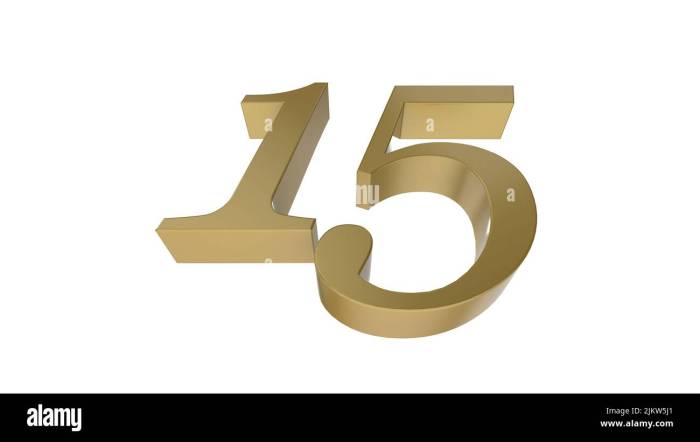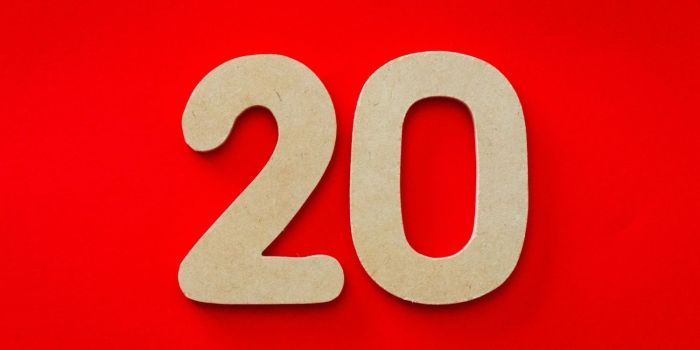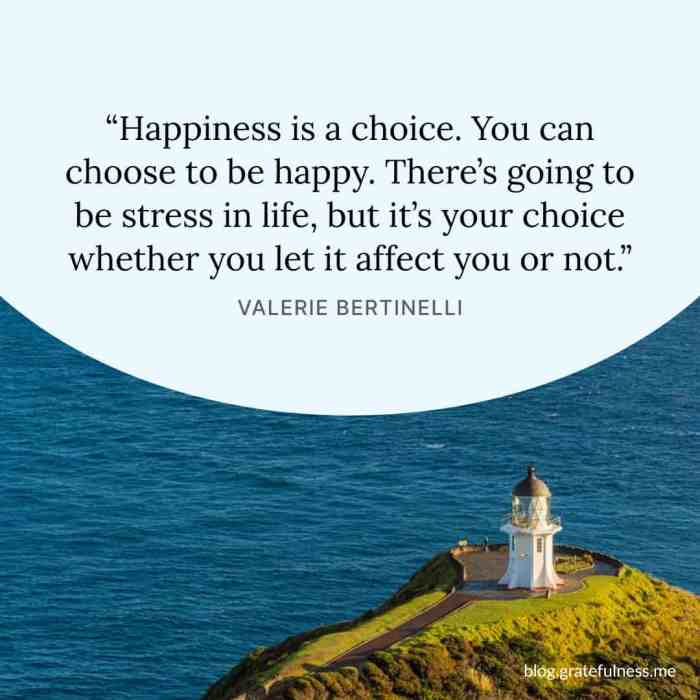5 things that you will learn when you stop using all social media. This journey into digital detox reveals surprising benefits, from reclaiming your focus to fostering deeper connections. It’s a path to self-discovery, where you’ll uncover the power of disconnecting to reconnect with yourself and the world around you.
This exploration dives deep into the transformative effects of stepping away from the constant stream of social media. We’ll examine how this digital detachment can lead to tangible improvements in focus, self-awareness, productivity, relationships, and stress levels. Imagine the possibilities that open up when you free yourself from the pressures and distractions of social media.
Improved Focus and Concentration
Social media’s pervasive presence often leads to a fragmented attention span. Breaking free from its constant pull can dramatically enhance focus and concentration. This shift isn’t about avoiding technology entirely, but rather cultivating mindful usage and developing strategies to optimize your cognitive resources. By understanding the detrimental effects of social media and implementing alternative methods for concentration, you can unlock a greater capacity for deep work and improved mental clarity.The constant stream of notifications and updates from social media platforms creates a significant barrier to deep thinking and sustained concentration.
This constant stimulation trains the brain to seek quick rewards and fleeting interactions, making it challenging to maintain focus on more demanding tasks. However, conscious effort and the adoption of effective strategies can help retrain the brain to concentrate more effectively.
Methods to Cultivate Focus
Developing focus requires conscious effort and the implementation of techniques to minimize distractions. These methods can be integrated into daily routines to foster a more attentive and productive mindset.
- Mindfulness and Meditation Practices: Regular mindfulness and meditation exercises can significantly improve focus by training the mind to observe thoughts and emotions without judgment. These practices help to quiet the internal chatter and cultivate a sense of present moment awareness, allowing for more effective concentration on tasks at hand. This increased awareness can be applied to various situations, leading to better focus in daily activities.
- Time Management Techniques: Utilizing time management techniques like the Pomodoro Technique or similar methods can create structure and discipline in your work schedule. These techniques involve focused work sessions with short breaks, effectively managing time and preventing procrastination. The structured approach helps to maintain a consistent flow of work and reduces the likelihood of distractions.
- Dedicated Workspace and Environment: Creating a dedicated workspace free from distractions is crucial. This space should be specifically designed for work, minimizing the temptation to engage with social media or other non-essential activities. Physical separation from tempting environments is a key component of successful concentration.
Negative Impacts of Social Media on Concentration
Social media’s allure often leads to a decrease in concentration and productivity. The constant influx of notifications and updates creates a constant pull for distraction. This results in a fragmented attention span and a struggle to maintain focus on tasks requiring sustained effort.
- Example 1: Attempting to concentrate on a complex problem-solving task while simultaneously checking social media updates. The constant interruptions and shift in attention will inevitably result in reduced comprehension and an increased likelihood of errors.
- Example 2: A student attempting to study for an exam while browsing social media. The allure of the platform’s content can lead to procrastination and a gradual decline in the quality of the study session, ultimately affecting the learning process.
Correlation Between Decreased Social Media Use and Enhanced Mental Clarity
A reduction in social media use is often associated with an improvement in mental clarity. The brain, freed from the constant barrage of stimuli and distractions, can function more effectively. The decrease in superficial interactions can allow for a greater focus on deeper thought processes. This reduced mental clutter leads to improved decision-making and a more profound understanding of complex issues.
- Observation: Individuals who limit their social media usage often report increased focus and a greater ability to maintain attention on tasks requiring sustained effort. This improvement in focus often translates to a more productive and fulfilling daily routine.
Identifying and Managing Distractions from Alternative Online Activities
While alternative online activities can offer benefits, they can also become distractions. It’s essential to identify and manage potential distractions from these activities to maintain focus.
- Distraction Identification: Recognizing patterns of distraction is crucial. This involves self-reflection and observing when and how online activities interfere with focus and productivity. Monitoring time spent on different online platforms can help to identify patterns and areas for improvement.
- Distraction Management: Implementing strategies to minimize distractions from alternative online activities is vital. This includes setting time limits for specific online activities, utilizing website blockers, or creating designated times for checking online platforms.
Transitioning from a Social Media-Heavy Lifestyle
Transitioning from a social media-heavy lifestyle to one with improved focus requires a gradual and mindful approach.
- Awareness and Assessment: Start by understanding your current social media usage patterns. Track the time spent on different platforms and identify the specific times and activities that lead to distractions.
- Setting Realistic Goals: Establish gradual reduction goals, such as reducing daily social media usage by a specific amount each week. Focus on consistent, manageable steps rather than drastic changes.
- Developing Alternative Activities: Identify and incorporate new activities that provide similar engagement and enjoyment without the distractions of social media. This can involve hobbies, physical activities, or spending time with loved ones.
- Regular Evaluation and Adjustment: Regularly assess your progress and adjust your strategies as needed. Be flexible and patient with yourself throughout the process. Seek support from friends, family, or professionals if needed.
Enhanced Self-Awareness
Social media has become an undeniable force in modern life, profoundly shaping our interactions and perceptions. However, this constant exposure to curated realities and filtered personas can significantly impact our self-perception, often hindering the development of genuine self-worth. Stepping away from these platforms can be a powerful catalyst for introspection, allowing us to rediscover our authentic selves and cultivate a more grounded understanding of our desires and values.Our self-perception is often molded by the narratives we consume and the comparisons we make.
By removing social media, we can begin to dismantle these external pressures and cultivate a more nuanced and accurate understanding of our own unique strengths and weaknesses. This introspection is key to unlocking a deeper sense of self-awareness and ultimately, a more fulfilling life.
Impact of Social Media on Self-Perception
Social media platforms frequently present idealized versions of reality, often influencing how we perceive ourselves. This curated presentation of lives, achievements, and relationships can foster feelings of inadequacy and dissatisfaction, particularly when we compare our own experiences to those portrayed online. Constantly exposed to this filtered reality, we may struggle to accept and appreciate our own journey, thereby hindering our ability to cultivate genuine self-worth.
Social Media Validation vs. Genuine Self-Worth
Social media validation, while seemingly offering a sense of belonging or acceptance, is often a fleeting and unreliable source of self-esteem. It relies on external approval and often fosters a cycle of comparison and insecurity. In contrast, genuine self-worth arises from within, stemming from a deep understanding and acceptance of our inherent value, regardless of external validation or criticism.
It is rooted in self-respect, resilience, and the ability to appreciate our own unique qualities. The difference is crucial; external validation is a fragile construct, while genuine self-worth is an enduring foundation.
Social Comparison and Self-Esteem
Social comparison, a natural human tendency, takes on a new dimension in the age of social media. The constant exposure to seemingly flawless lives online can lead to feelings of inadequacy and low self-esteem. Individuals may feel pressured to conform to unrealistic standards of beauty, success, and social status, leading to feelings of self-doubt and dissatisfaction. This can manifest in various ways, from body image issues to feelings of inadequacy in relationships and career.
Introspective Framework for Uncovering True Desires
To uncover our true desires and values free from external influences, a structured approach to introspection is invaluable. This involves actively reflecting on our experiences, acknowledging our feelings, and identifying patterns in our thoughts and behaviors. Journaling, mindfulness practices, and engaging in activities that foster self-discovery are essential tools. The process requires a willingness to be honest with ourselves, even when it’s uncomfortable.
Social Media Influence vs. Increased Self-Awareness
| Social Media Influence | Increased Self-Awareness |
|---|---|
| Constant exposure to curated realities can lead to feelings of inadequacy and low self-esteem. | Reduced pressure to conform to unrealistic standards, allowing for a more accurate self-perception. |
| Social comparison fosters insecurity and a cycle of striving for external validation. | Development of self-acceptance and understanding of individual strengths and weaknesses. |
| Idealized portrayals on social media can hinder appreciation for one’s own journey. | Focus on personal growth and fulfillment, untethered from external expectations. |
| Seeking validation from online interactions often replaces genuine self-worth. | Cultivation of internal sources of motivation and self-respect. |
| Comparison to others’ achievements can lead to feelings of dissatisfaction and anxiety. | Increased appreciation for individual differences and acceptance of personal pace of growth. |
Reclaimed Time and Productivity

Social media, while offering connection and information, often consumes significant chunks of our day. This constant stream of updates, notifications, and scrolling can lead to a feeling of being overwhelmed and unproductive. Stepping away from these platforms can unlock a surprising amount of time and energy that can be channeled into more meaningful and productive activities.
Giving up social media reveals some surprising things. You might discover a newfound sense of calm, and notice how much more energy you have. Interestingly, this newfound energy can be linked to a decrease in anxiety. Are you wondering if anxiety makes you tired? Check out this helpful article on does anxiety make you tired to explore the connection.
Beyond that, you’ll probably find yourself more present in your daily life, focusing on real-world interactions and experiences, leading to a deeper appreciation for the people and things around you. Ultimately, disconnecting from social media can be a powerful step towards a healthier, more fulfilling life.
Time-Consuming Social Media Activities
Many activities on social media can unexpectedly eat away at our precious time. Recognizing these time-wasting habits is the first step towards reclaiming that lost time.
- Excessive scrolling: Mindlessly scrolling through feeds, often for extended periods, can drain considerable time without offering tangible benefits.
- Engaging in online debates and arguments: Participating in online arguments or disputes, especially those that escalate, can be incredibly time-consuming and unproductive, often resulting in stress and negativity.
- Checking notifications frequently: Constantly checking for new messages, comments, or updates can interrupt work, personal tasks, and overall focus.
- Participating in online games or activities: Time spent on online games, quizzes, or other interactive content can easily add up, often without a clear return on investment in terms of productivity or personal growth.
- Social media shopping and browsing: Browsing through online marketplaces or social media shops can lead to impulse purchases or unnecessary spending, distracting us from our goals and objectives.
How Social Media Impacts Productivity
The constant influx of information and notifications from social media can significantly reduce our ability to focus and concentrate. This interruption of our workflow makes it harder to complete tasks and achieve our goals.
Reduced social media use often leads to increased productivity, allowing for a greater focus on personal goals and projects.
Ever wondered what happens when you ditch social media? Well, you might be surprised by the 5 things you’ll learn. For instance, you’ll likely discover a newfound appreciation for real-life interactions and the ability to focus on more meaningful pursuits. This is where 25 pieces practical advice you should take master anything comes in handy, providing invaluable strategies for honing your focus and achieving your goals.
Ultimately, disconnecting from social media can lead to a more grounded perspective, helping you identify what truly matters and reclaim your time. This can greatly benefit your overall well-being.
When we are less distracted, our ability to work efficiently and complete tasks increases. This improvement in focus leads to a significant boost in productivity.
Strategies for Allocating Reclaimed Time
The time freed up from social media can be strategically allocated to personal projects. A planned approach is key to maximizing the impact of this newfound time.
- Prioritize personal projects: Identify personal projects that align with your goals and aspirations. Whether it’s learning a new skill, starting a side hustle, or pursuing a creative passion, these activities should be prioritized in your schedule.
- Establish dedicated time blocks: Allocate specific time blocks for personal projects in your daily or weekly schedule. This structured approach helps maintain focus and consistency in pursuing your goals.
- Break down large tasks: Divide large, daunting projects into smaller, manageable tasks. This approach makes the projects less overwhelming and more achievable.
Time Allocation Comparison
| Activity | Estimated Time Spent (per week) | Potential Productive Activities |
|---|---|---|
| Social Media | (Variable, can range from 1-10 hours per day) | Personal development, skill acquisition, creative projects, hobbies |
| Personal Development | (Variable, depending on chosen activities) | Increased focus, improved self-awareness, enhanced productivity, time management |
The table above illustrates the potential time shift that can be realized by reducing social media use and allocating that time to productive personal development activities.
Deeper Connections and Relationships

Social media has undeniably revolutionized communication, but it’s also introduced subtle yet significant ways it can impact our personal relationships. Stepping away from the constant digital stream can reveal a surprising depth of connection that was previously obscured. We often find ourselves more engaged and present in our interactions when we’re not simultaneously navigating the complexities of social media.
This often leads to a greater appreciation for the nuance and depth of face-to-face communication, and fosters more meaningful interactions.Social media use, while offering opportunities for connection, can also hinder the development of genuine relationships. This isn’t about demonizing technology, but about recognizing its potential pitfalls. Becoming more aware of these pitfalls and actively working to cultivate deeper, more meaningful relationships in the real world is key to a richer life.
How Social Media Can Hinder Meaningful Relationships
Social media interactions often lack the depth and nuance of face-to-face conversations. This superficiality can lead to a diluted understanding of others and a diminished appreciation for the complexity of human connection. Furthermore, the curated nature of social media profiles can present unrealistic and idealized versions of reality, often creating comparisons and insecurities. Constantly scrolling through others’ lives can foster feelings of inadequacy and a diminished appreciation for one’s own experiences.
The constant barrage of notifications and updates can also lead to distractions, reducing the quality of time spent with loved ones. Furthermore, the pressure to maintain a certain online persona can detract from authenticity and genuine emotional expression. Finally, the prevalence of online conflicts and disagreements can spill over into real-life interactions, further straining relationships.
Enhancing Connection Through Face-to-Face Interactions
Face-to-face interactions offer a unique opportunity for genuine connection. The ability to observe body language, read subtle cues, and respond in real-time provides a richer understanding of others. These interactions allow for deeper emotional connections, enabling empathy and understanding that are often absent in digital communication. For example, a simple smile or a thoughtful gesture can communicate volumes in a face-to-face encounter, whereas a text message might fall flat.
The physical presence allows for a more holistic understanding of the individual, encompassing not just their words but also their expressions, their demeanor, and their body language. In essence, face-to-face communication provides a more comprehensive understanding of the individual beyond just their online persona.
Reduced Social Media Use and Improved Communication Skills
Reducing social media use often leads to an improvement in communication skills. By prioritizing face-to-face interactions, individuals naturally hone their ability to listen attentively, engage in meaningful dialogue, and respond thoughtfully. This is particularly important for active listening and nuanced communication. The ability to understand nonverbal cues and engage in deeper conversations improves. In essence, the emphasis on real-world interaction cultivates these essential communication skills.
Strategies for Fostering Genuine Connections
Cultivating genuine connections outside of the online world requires intentional effort and conscious choices.
Ever wondered what happens when you ditch social media? Well, besides gaining some much-needed free time, you’ll likely discover a whole new appreciation for real-life connections. You’ll also learn to fill your days with more meaningful activities. For instance, check out 30 ways add fun your daily routine to find inspiration on how to replace mindless scrolling with engaging hobbies and activities.
Ultimately, disconnecting from social media will reveal five things about yourself and the world around you that you might’ve previously overlooked.
- Scheduling Dedicated Time for Relationships: Allocate specific time slots in your schedule for meaningful interactions with loved ones. This demonstrates a priority and value for these connections, making them a non-negotiable part of your routine. This could be a weekly dinner with family, a monthly outing with friends, or regular phone calls with family members.
- Engaging in Shared Activities: Participating in shared experiences, like hiking, cooking, or playing games, fosters deeper bonds. These shared activities provide opportunities for meaningful conversation, laughter, and the development of shared memories. This shared experience is key to building stronger bonds.
Evaluating Existing Relationships
Evaluating the quality of existing relationships involves acknowledging the dynamics and identifying areas for improvement. This process should be approached with self-reflection and a willingness to understand your role in the relationship. A simple yet effective method is to consider the following factors:
| Relationship Category | Factors to Consider |
|---|---|
| Communication | Frequency of interaction, clarity of communication, active listening, respect for differing opinions. |
| Support | Emotional support, encouragement, helpfulness, empathy, and understanding. |
| Shared Experiences | Quality of time spent together, shared interests, and creation of memories. |
| Respect and Trust | Acceptance of differences, valuing each other’s opinions, honesty, and reliability. |
By acknowledging these factors, you can identify areas where relationships can be strengthened, fostering deeper connections and a greater sense of well-being.
Reduced Anxiety and Stress
Social media, while offering connectivity and information, can paradoxically contribute to feelings of anxiety and stress. The constant exposure to curated, often idealized, versions of others’ lives can fuel negative comparisons and unrealistic expectations, leading to feelings of inadequacy and diminished self-worth. Breaking free from this cycle can be a powerful step toward greater mental well-being.The curated nature of social media profiles often presents an unrealistic portrayal of individuals’ lives, highlighting only the positive aspects and obscuring the complexities of everyday experiences.
This can lead to feelings of inadequacy and a constant striving to achieve a perceived standard of excellence that is often unattainable. This pressure, coupled with the pervasive nature of comparison, significantly impacts mental well-being.
Comparison and Mental Well-being
Social media platforms are breeding grounds for comparison. Users are constantly exposed to carefully crafted images and narratives, creating an illusion of perfection and success that rarely reflects reality. This comparison, rather than fostering inspiration, often fuels feelings of inadequacy and low self-esteem. People may feel inadequate if their own experiences don’t measure up to the seemingly effortless achievements presented online.
Social Media and Unrealistic Expectations
Social media often contributes to unrealistic expectations about appearance, relationships, and success. The idealized portrayals of life, relationships, and achievements on these platforms create a sense of urgency to keep up, leading to pressure and stress. This pressure can lead to dissatisfaction and anxiety, as people constantly strive to meet standards that are inherently unattainable. Individuals may feel compelled to conform to these often unrealistic standards, leading to feelings of inadequacy.
Mindful Activities for Anxiety Reduction, 5 things that you will learn when you stop using all social media
Mindful activities can be effective tools for reducing anxiety. These practices promote self-awareness and help individuals focus on the present moment, reducing the tendency to ruminate on past mistakes or worry about the future.
- Mindfulness Meditation: Practicing mindfulness meditation involves focusing on the present moment without judgment. This can help individuals become more aware of their thoughts and feelings without getting carried away by them. It helps cultivate a sense of calm and detachment from the anxieties that arise from social media comparisons.
- Journaling: Writing down thoughts and feelings can be a powerful way to process emotions and gain clarity. Journaling allows for self-reflection, helping individuals identify triggers for anxiety and develop coping mechanisms. By documenting the impact of social media on their well-being, individuals can gain valuable insights into their emotional responses.
- Physical Activity: Engaging in regular physical activity releases endorphins, which have mood-boosting effects. Exercise can be a powerful tool for managing stress and anxiety. Physical activity provides a healthy outlet for pent-up energy and helps reduce feelings of restlessness and tension.
Negative vs. Positive Impacts of Reducing Social Media Use
| Negative Impacts of Social Media on Mental Health | Positive Impacts of Reducing Social Media Use |
|---|---|
| Increased anxiety and stress due to comparison and unrealistic expectations. | Reduced anxiety and stress due to a decrease in exposure to idealized portrayals. |
| Lowered self-esteem and feelings of inadequacy. | Improved self-awareness and self-acceptance. |
| Time wasted on unproductive scrolling. | Reclaimed time for meaningful activities and personal growth. |
| Distorted perception of reality due to curated content. | Enhanced focus and concentration on tasks and responsibilities. |
Closing Notes: 5 Things That You Will Learn When You Stop Using All Social Media
Ultimately, consciously disconnecting from social media allows for a profound reconnection with yourself and the world around you. You’ll gain a greater understanding of your true needs and desires, leading to improved focus, increased productivity, and a deeper appreciation for the real-life connections that matter most. Embark on this journey of self-discovery and experience the remarkable shift that awaits.











